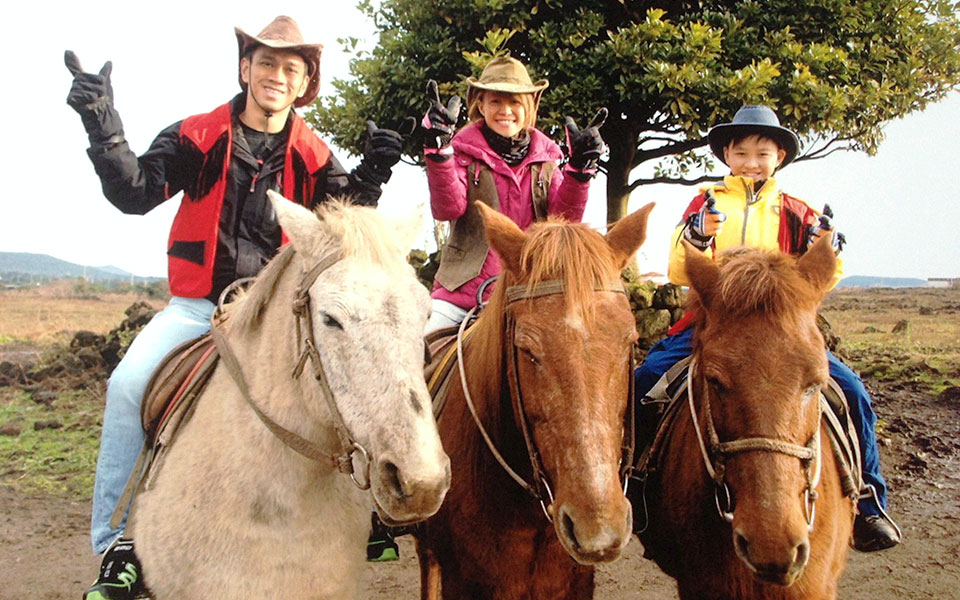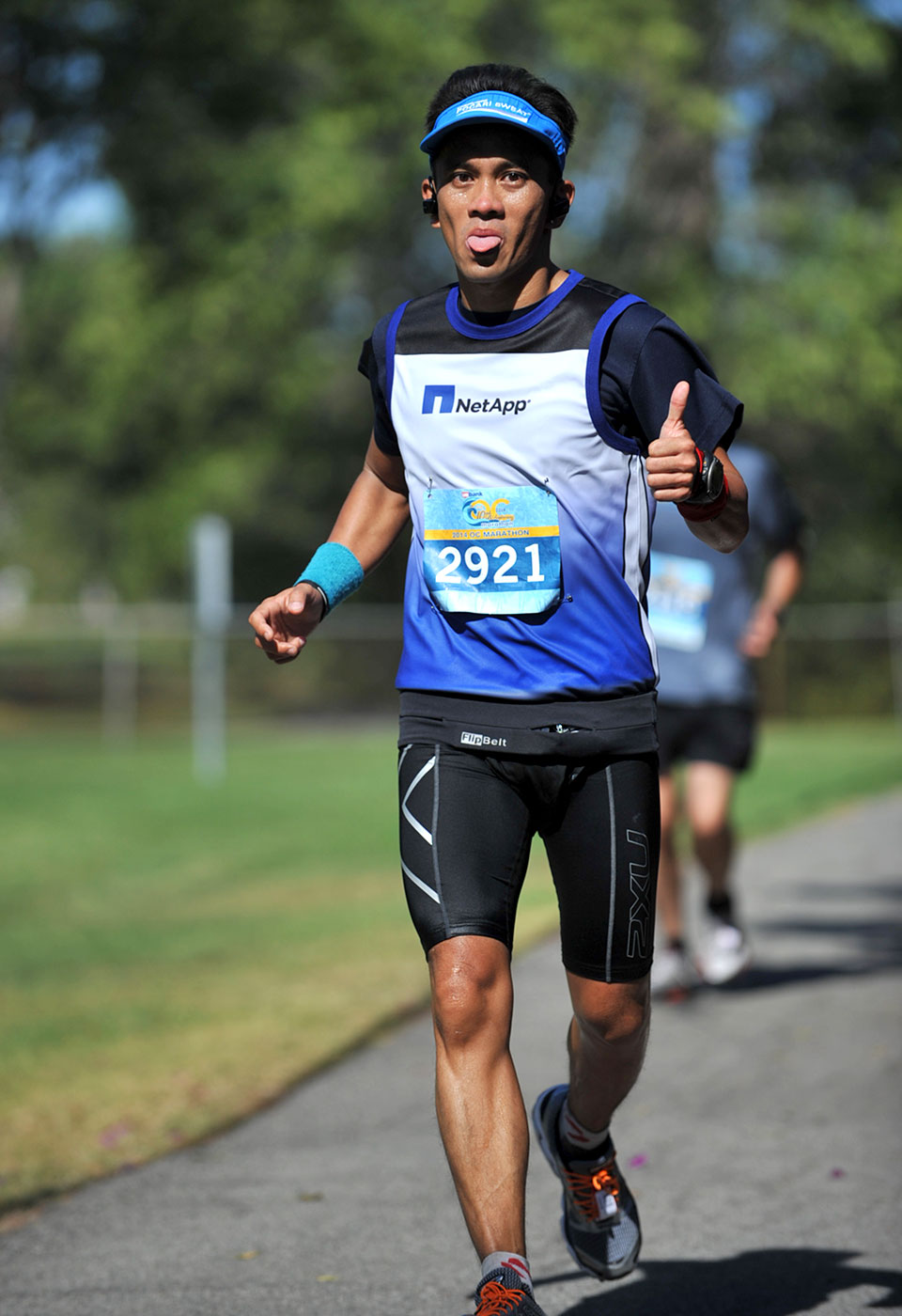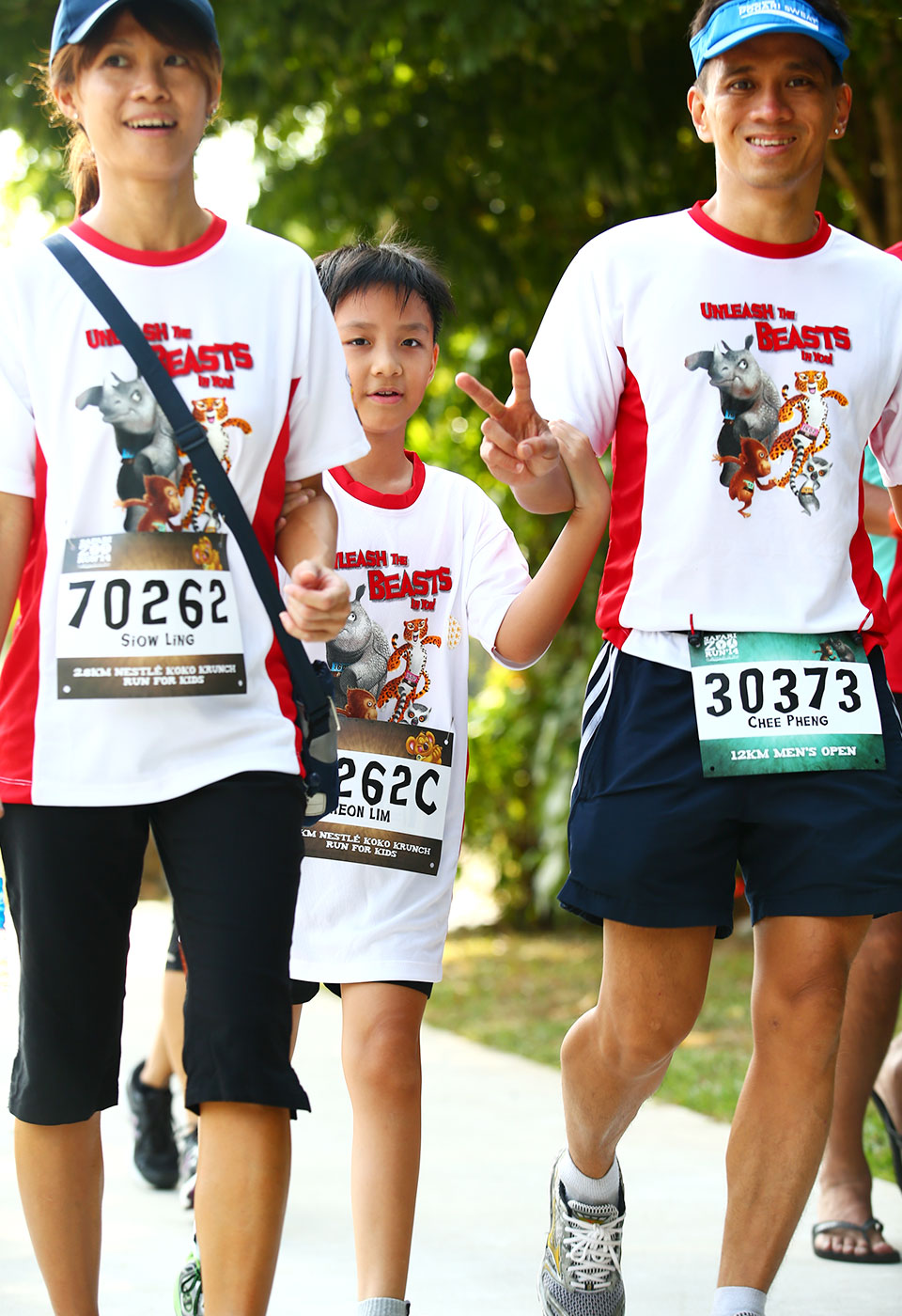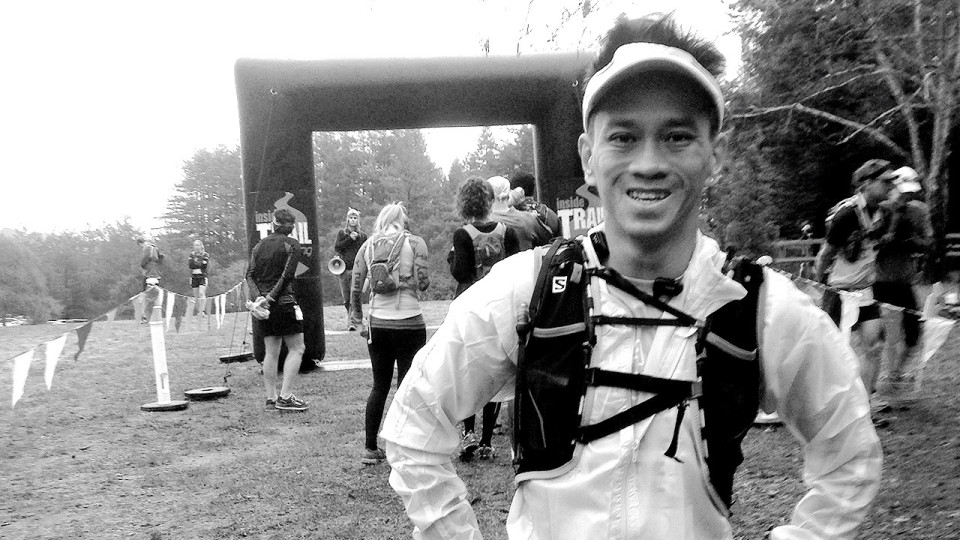He’s no ordinary runner! Sean Lim Chee Pheng has a demanding job, a loving wife, a healthy child and he travels a lot, but he never lets having so much on his schedule interfere with his passion for charity, running and helping others. See if Sean doesn’t inspire you to complain less and do more to make the world a better place in which to live.
RS: Sean, how do you juggle so many balls in the air at the same time? You work, travel, spend time with family, run and do charitable work. When do you sleep?
Sean: I get lots of sleep—probably because I have such a happy, satisfying life. It’s all a matter of scheduling and priorities. I run in the morning and have the discipline to stick to that since there’s no other time to do it. Then, time for breakfast and work. Evenings are devoted to family because without family time, I’m not happy.

RS: Do you run every day?
Sean: I reserve Wednesday as my leg rest day. On weekends, I do longer runs because I have the extra time. But that doesn’t mean I don’t “sneak in” other running opportunities when they arise. I might get in an impromptu run up sets of stairs, jog across the park or hit the gym if I find myself with unexpected free time.
RS: Do you have other tips for squeezing in extra exercise and staying healthy?
Sean: I plan my day so I don’t sit in peak hour traffic and instead of eating a big lunch that can make me feel tired, I substitute two or three small meals instead. I call lunch time “The Golden Hour” because everyone is gone and I can get things done without disruptions. I take the train to work some days and handle all of my e-mails during the commute.
RS: How about when you travel?
Sean: Honestly, nothing changes—the same routine applies whether I’m in or out of town—up early and run, except on Wednesday. Sure, late nights and unfamiliar places can try and disrupt the routine, but I don’t let it. When I take back-to-back trips, my family may join me on weekends. I like to combine business trips with family vacations and overseas running events. I’m in great company, by the way. Singapore is a regional business hub so I’m always surrounded by people who travel and run, so the topic of our conversations often revolves around how to stay disciplined and fit while maximizing family time.
RS: Is it true that your employer gives you volunteer time off if you’re competing in a race?
Sean: I work for NetApp and this is the most people-centric culture I’ve ever had the good fortune to experience. My employer believes that happy, fulfilled employees are more productive and satisfied, which is why we get five VTO (Volunteer Time Off) days annually so we can give back to society by supporting our favorite social causes. My company also pays 50 percent of my gym membership fee.
RS: Does your company have a running club?
Sean: Not only do they have a running club, but there’s a cycling group organized by NetApp and the company sponsors an ultramarathon running team! Who could ask for a better, more supportive work environment?
RS: Sounds like your employer is terrific, but demanding—have you ever thought of switching positions and landing a job that’s less intense so you have more time for family and running?
Sean: Never! It’s up to me to pace myself and to manage my time, and because my employer is so committed to staff, I’ve become a master at prioritizing. I listen to my head and my body. I know when it’s time to ask for help managing things, when to slow down and relax. Importantly, I have learned to know when it’s time to stop working and take a break so I stay refreshed and re-energized.
RS: Given a daunting work and travel schedule, how do you make time to train?
Sean: I’ve been running for over a decade and during that 10+ years, I have become adroit at determining my level of fitness as well as refining my training schedule so I maximize my time with great efficiency. When a race is on my calendar, I increase my training time. My philosophy of running helps too: I never run specifically to win medals or push the limits of my personal best timing. Each run is unique, and being confident about my training rituals means I’m under less stress. Frankly, one of the best perks of having a job requiring me to travel is my ability to coordinate business trips with overseas running events.

RS: Your next challenge is to be the Sahara Desert Race. Why did you choose this race with so many other events on the international calendar?
Sean: I could say that I picked the Sahara race because it’s the first 4 Desert run for 2015 (LOL), but the answer is about my current condition: I’m in great shape—stamina, mentally ready and conditioned. I’m healthy and injury-free, so the Sahara makes perfect sense right now. I was in Egypt last January. My guide pointed at the distant desert.
“You’re looking at the famous Sahara,”
he told me. Like most dedicated runners, I immediately made a mental note:
“I must run there at the first chance I get!”
Here I am.
RS: You are obviously keen on ultra-marathons since you’ve run many. Which was the toughest?
Sean: I ran the TMBT Sabah in August 2014 and it was unforgettable. This single stage, 102km run takes runners up and down Mount Kinabalu. We faced total elevation gains and losses of between 5565 and 4305m. Then it poured rain for eight hours straight; the heaviest rain Sabah experienced in 25 years! I ran in almost total darkness, fell countless times and even encountered barbed wire, which cut me badly. The medical staff urged me to quit, but with 70km already accomplished, that wasn’t going to happen! It took 25 hours to finish, but I was ranked #20 overall.
RS: When you started running in 2005, you had smoked for 14 years. Did running help you quit?
Sean: Actually, I have my son to thank for quitting smoking. He was born early—at 33 weeks—with a detached umbilical cord. He suffered oxygen deprivation and wasn’t breathing when he was delivered. The doctors were concerned about his development because lack of oxygen meant his brain could be affected. I looked at him in the ICU—a tiny boy hooked up to needles and bags—but I could tell he was a fighter! I made a promise to him: You survive and Daddy will take care of you. But to properly care for him, giving up cigarettes was part of the deal. We both made good on our commitments: I stopped smoking and he’s now healthy and normal!
RS: Do your wife and son run, too?
Sean: My wife is an avid swimmer and my son doesn’t have the endurance to run. To be honest, I don’t want him running long distances until his bones finish developing. Then, it will be his choice. But that doesn’t mean that they don’t join me at the park when I run—especially over weekends when we are all together as a family.

RS: When you run the Sahara Race, we understand that you will represent Club Rainbow, a popular charity. Why did you specifically select Rainbow as your running cause?
Sean: Club Rainbow helps families and that’s my priority too. I come from a family of seven children and my dad suffered a stroke early, so things were financially tight. I had multiple hospital encounters as a child, as did my siblings, and you already know the story about my son. Rainbow makes sure that families in financial distress get help to endure and survive emotional and financial crises. I started donating money to Club Rainbow in 1998 and have since found other ways to call attention to this worthwhile organization, including “Ride with Rainbow”, a 140km cycling event. This year, I undertake the 250km 4Desert Sahara run in Rainbow’s name.
RS: You’ve got a lot on your plate—dare we ask if you have set your sites on other challenges?
Sean: That’s to be determined by how well my body performs during the 250km Sahara! I’m keen to do the Jeju Ultramarathon, a 200km run. If my schedule allows, other events on the 4Desert calendar look good too.
RS: What advice would you give to others who have daunting work/ personal/ running commitments?
Sean: It took me a long time to learn this lesson, but it’s the best advice I can offer: Pace yourself. There’s no need to rush. If you pace yourself, you cut down on the potential for injury, keep your head on straight and keep stress at bay. Remember: It’s better to finish a run with a longer completion time than risk a DNF!
Do you identify with Sean Lim? Is your life a series of challenges that require you to focus on timing, pacing and priorities so you seamlessly interface all of the things that matter—family, job and running? We’d like to know the secret to your success—the unique way(s) you manage to keep your life on track so you don’t miss a moment of the fun, love and excitement that makes life worth living!




